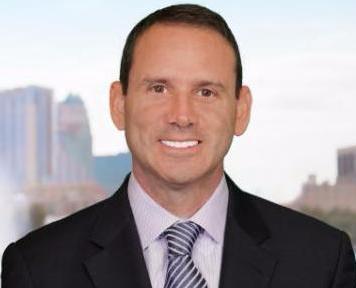Jeffrey Rembaum, Esq. is a Board Certified Specialist in Condominium and Planned Development Law and a community association lawyer with the law firm Kaye Bender Rembaum, in its Palm Beach Gardens office. His law practice consists of representing condominium, homeowners, and cooperative associations, developers and unit owners throughout Florida. He can be reached by email at JRembaum@KBRLegal.com or by calling 561-241-4462.
Guns in the Clubhouse: What Can a Community Association Do?
The right of the people to carry and bear arms without governmental infringement is a right which stems from both the United States Constitution and the Constitution of the State of Florida. The State of Florida recently adopted new gun legislation, effective July 1, 2023, which allows the everyday citizen to carry a concealed weapon without first obtaining a concealed weapons permit. This raises interesting questions for community associations such as, is the right to carry a concealed weapon absolute? Can a community association adopt a rule that prohibits the carrying of concealed weapons in the clubhouse or other common area facilities?
Before we get too far in our analysis, it is important to point out that the intent of this article is not to advocate for gun control or the right to carry. Rather, the intent of this article is to examine the rulemaking authority of a board of directors of a community association to prohibit concealed weapons in the clubhouse and other common areas. In short, is it possible for a community association to adopt such a rule? Yes, subject to the cautions and explanations explained below. Is the adoption of such a rule risk free? No!
As the starting point, in order for a board-made rule of this nature to have validity, we must examine whether it violates either the United States Constitution or the Constitution of the State of Florida. As to when constitutional protections apply within a community association, this is an interesting question. In prior cases, courts have found that recorded covenants restricting home ownership based on race will subject the covenants to a constitutional examination, and in the end, such covenants were deemed to violate the equal protection clause of the Fourteenth Amendment to the United States Constitution.
Another method by which courts may find application of constitutional protections to community associations is if there is significant governmental action associated with the community association. For example, an argument would exist that if a community association were built with federal monies, the covenants of such a community association would be subject to all the protections afforded by both the United States Constitution and the Constitution of the State of Florida. Often, multiple community associations that exist within a sprawling master association are built in community development districts (CDD). The CDD is a quasi-governmental entity established to govern and control what would otherwise be the common areas of the master association. The creation of the CDD allows many of the hard costs associated with the community’s build-out, such as the roads and drainage systems, to be immediately passed on to the first-time home buyers. By utilizing a CDD, long-term bonds can be issued, which are paid back through ad valorem tax obligations allowing the costs to spread out over a significantly longer period of time. As quasi-governmental entities, constitutional protections which limit powers of government would likely apply to CDDs. Therefore, should a CDD adopt rules to prohibit concealed weapons in the common areas, such a rule would likely be found to violate constitutional protections. However, the same analysis is not applicable if the community association itself adopted such a rule.
It should be remembered that courts have long held that owners give up certain individual rights and liberties when living in a community controlled by a community association. In 2002 the Florida Supreme Court held, in Woodside Village v. Jahren, 806 So. 2d 452 (Fla. 2002), that certain individual rights must be compromised when one chooses to live in a condominium association (and by analogy, in a homeowners’ association, too). But, on occasion courts have found that certain constitutional protections apply within a community association; however, such application is somewhat rare.
Thankfully, we do have some limited guidance. In 1989 the Florida Supreme Court held, in Quail Creek POA v. Hunter, 538 So. 2d 1288 (Fla. 2d DCA 1989), that neither a homeowners’ association’s recording of its covenants in the public records, nor the enforcement of its covenants in state court, created a sufficient nexus to evidence “state action” such that the First Amendment and the Fourteenth Amendment of the United States Constitution would apply. By analogy, such logic could be applied to defending the right of a community association to adopt a rule prohibiting concealed weapons in the clubhouse. Thus, there is no reason to believe that such arguments would not also apply to the application of the Second Amendment of the United States Constitution within community associations. That said, it would not at all be surprising for an owner to challenge such a rule; so, any association that adopts such a rule should be prepared to be a possible test case, which could have national implications associated with it.
Let us assume that the board understands and accepts such a risk and is ready to move forward to adopt a rule prohibiting the carry of concealed weapons in the clubhouse. Certainly, we recommend that counsel for the association be consulted prior to adopting these types of rules. For the purposes of our analysis, let us also assume that the community association at issue does not have a sufficient nexus to the federal or state governments that would, in and of itself, render such a rule unconstitutional. Under these circumstances, the analysis can then shift to the ordinary rulemaking criteria necessary to withstand judicial challenge, as follows:
-
-
- Does the board have the necessary rulemaking authority set out in the governing documents or by statute to adopt such a rule?
- Does the rule conflict with any rights afforded by governing documents of higher priority, whether they are considered express or implied rights?
- Is the rule reasonable? Reasonableness is difficult to define, but case law provides that the rule must be rationally related to a legitimate association objective. The rule cannot be arbitrary or capricious.
- Does the rule contravene existing laws or compelling public policies?
- Was the rule adopted in a procedurally correct manner that is provided by both the governing documents and existing law?
Of course, even if the association adopts such a rule, enforceability is an entirely different issue. Assuming the association is not using some type of full body scanner, then so long as the possessor of the concealed weapon does not brandish the weapon, and thus it remains fully concealed, no one will be the wiser. In addition, such a rule would not apply to certain individuals who have an absolute right to carry a concealed weapon, subject to very few limitations, such as an off-duty police officer.
As an aside, just because a person may not need to have a concealed weapon permit to carry a concealed weapon, this does not mean that the still-available concealed weapon permit does not have value. It certainly does when it comes to traveling outside the State of Florida to one of the many states, over 26, that have reciprocity with Florida, meaning that the other states recognize Florida’s concealed weapons permit. With that in mind, obtaining a concealed weapons permit may still make sense.
While a properly drafted rule prohibiting guns in the clubhouse stands a decent chance of validity, remember that even if your association
i) fully analyzes whether it has any type of federal governmental nexus which would provide for clear application of constitutional protections and such analysis is answered in the negative, ii) meets the rule adoption criteria listed above, and iii) consults with the association’s lawyer who helps draft such a rule, the association could still find itself as a defendant in a lawsuit seeking to have such a rule invalidated by the court.





















